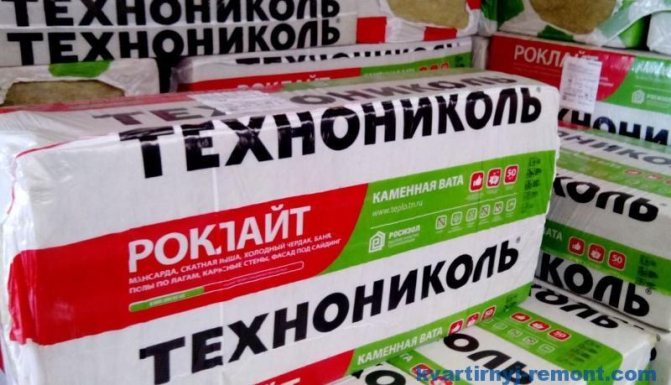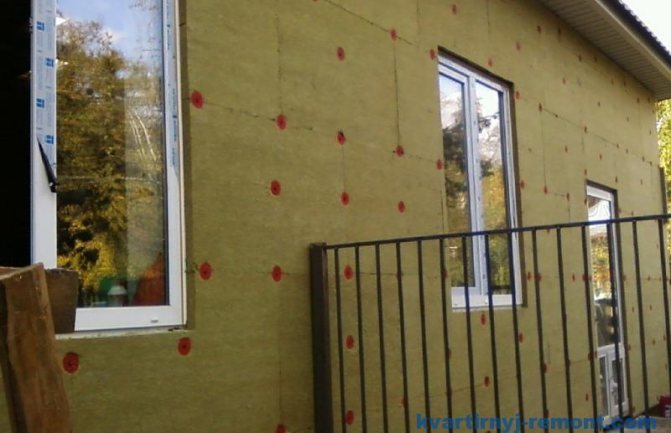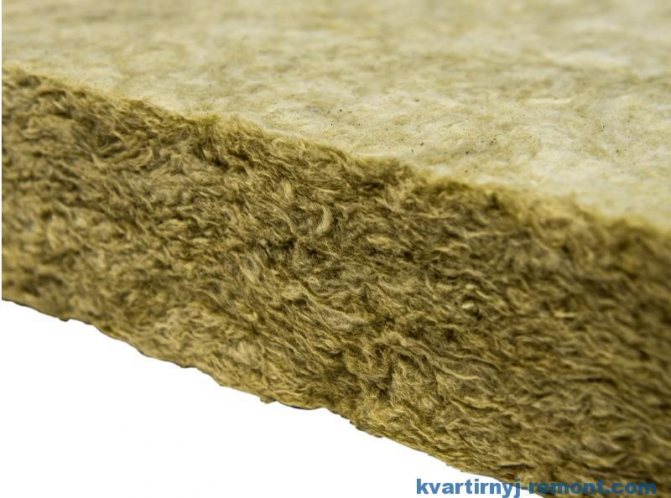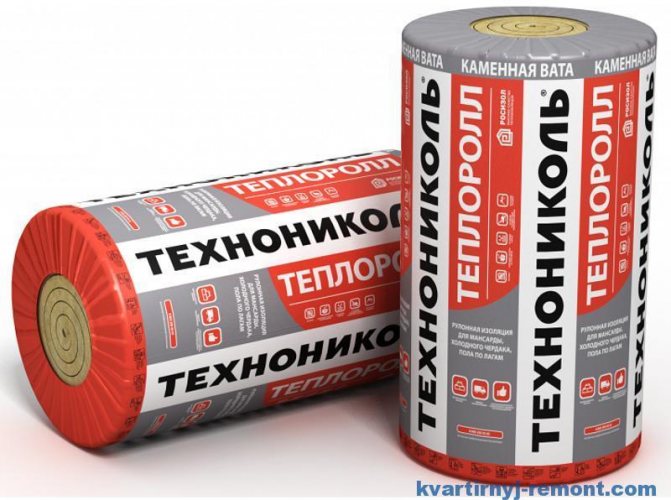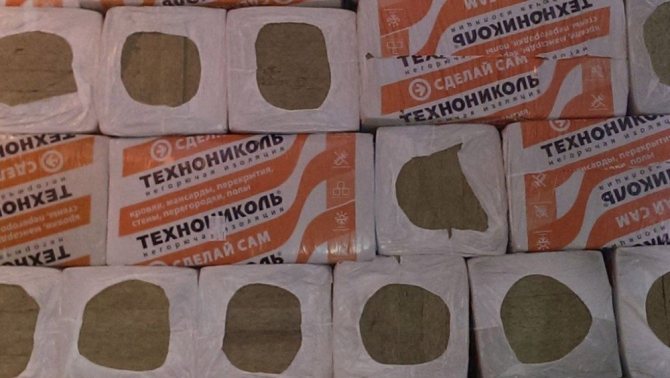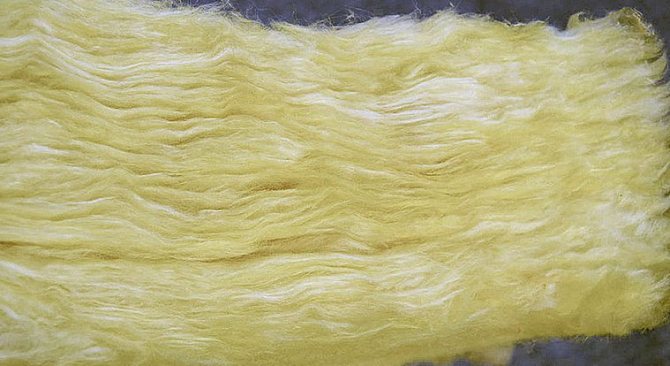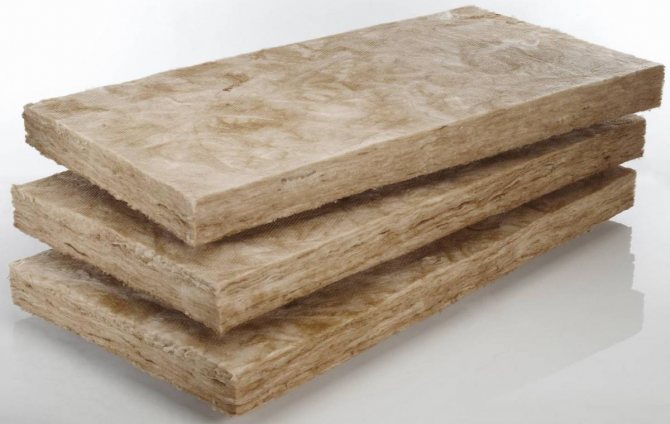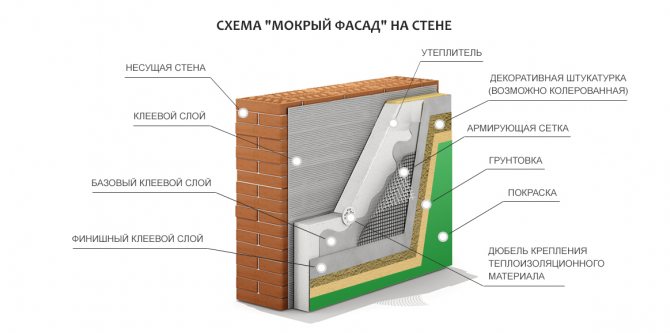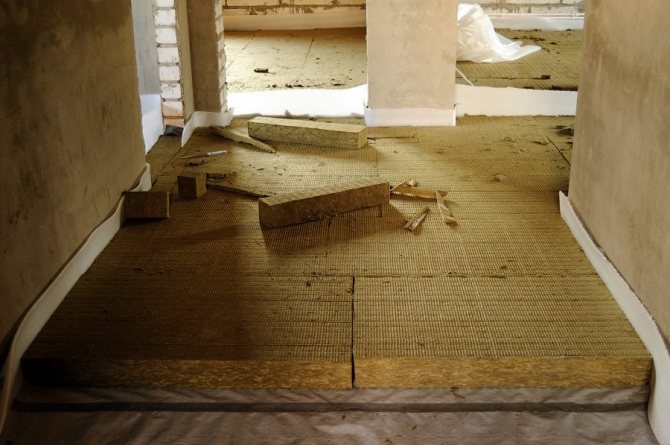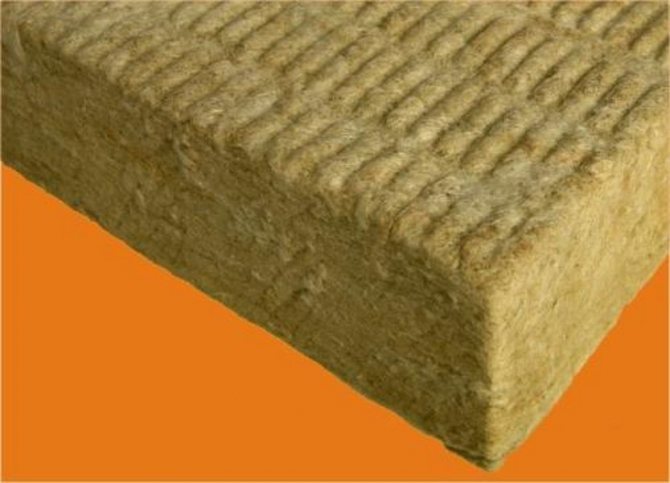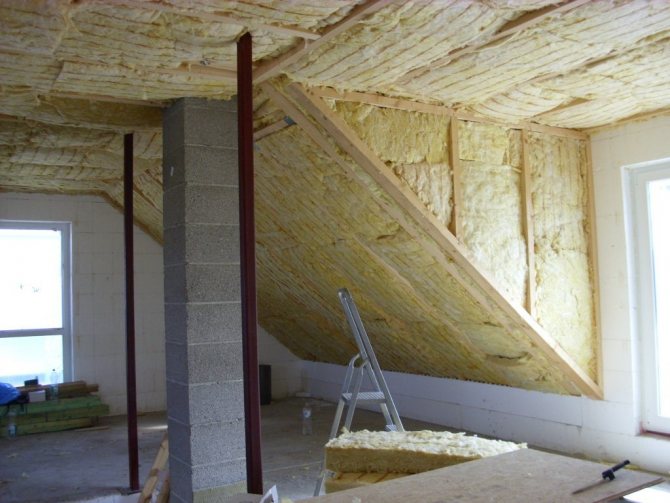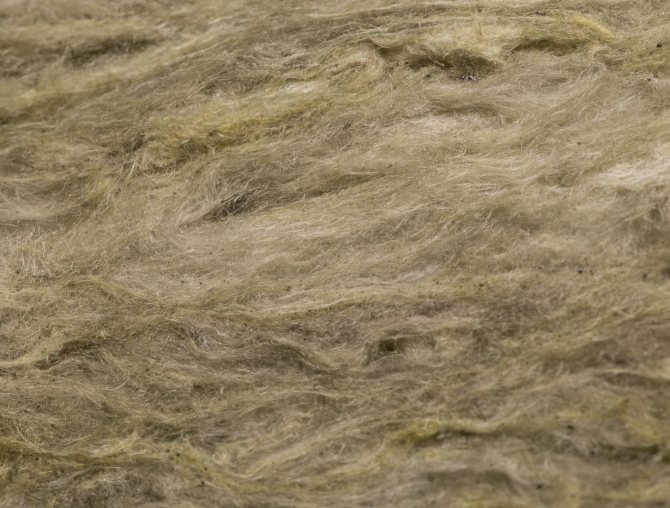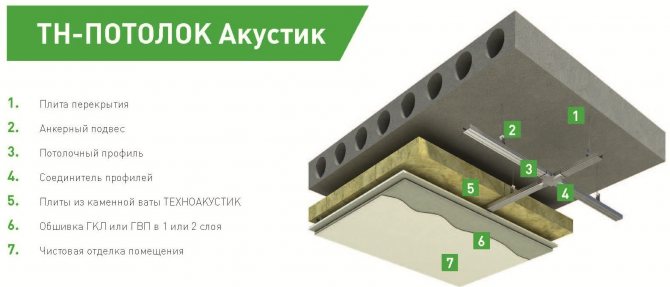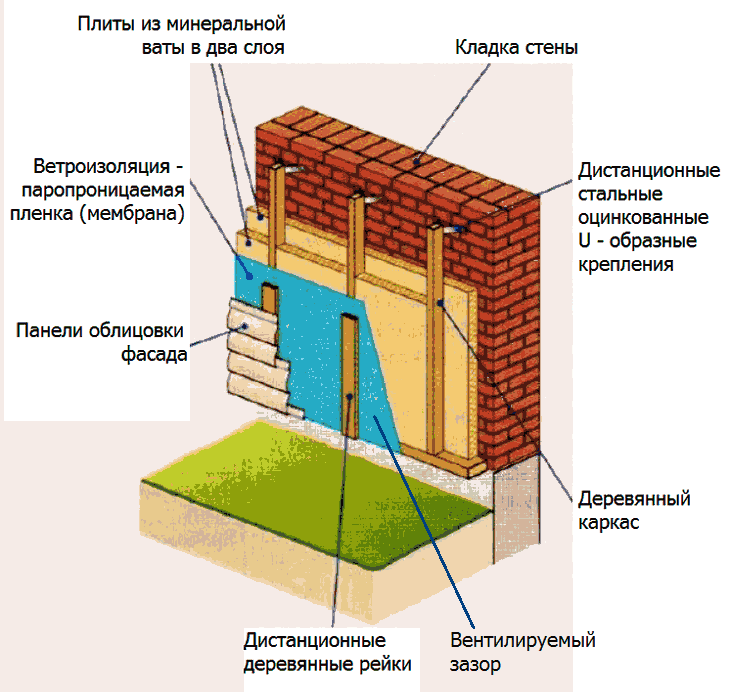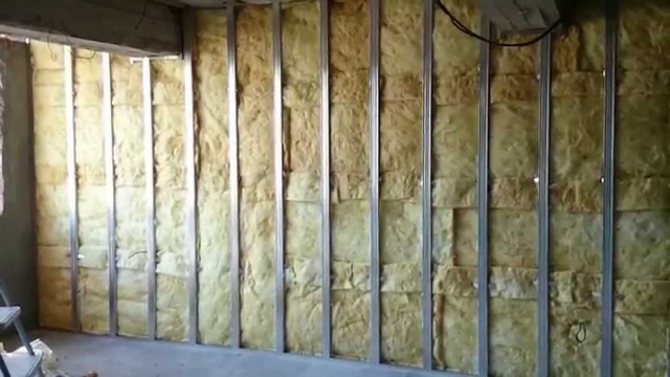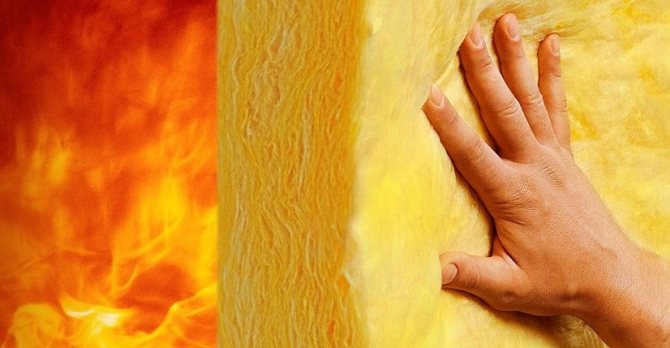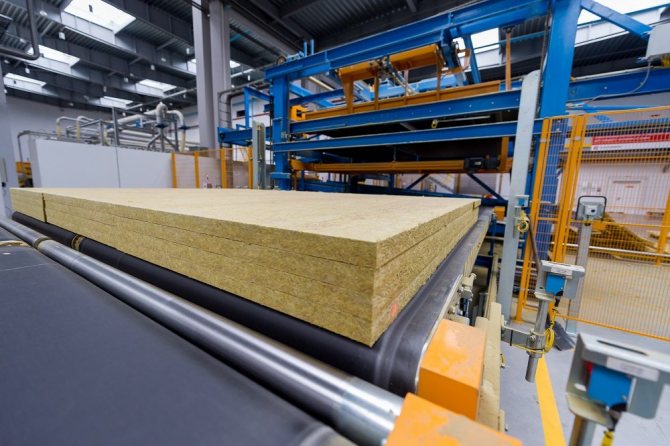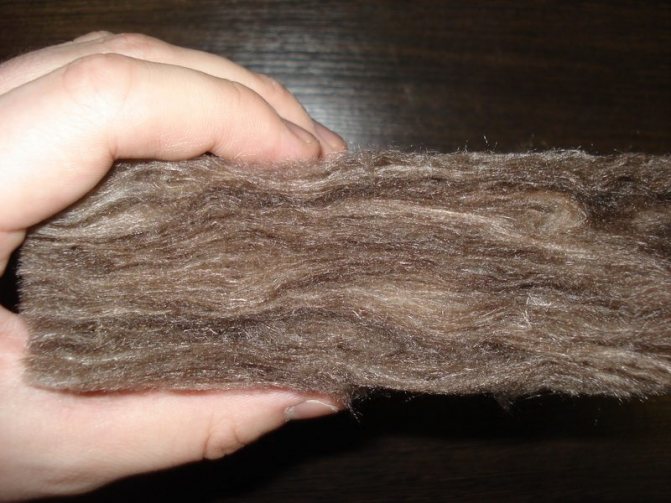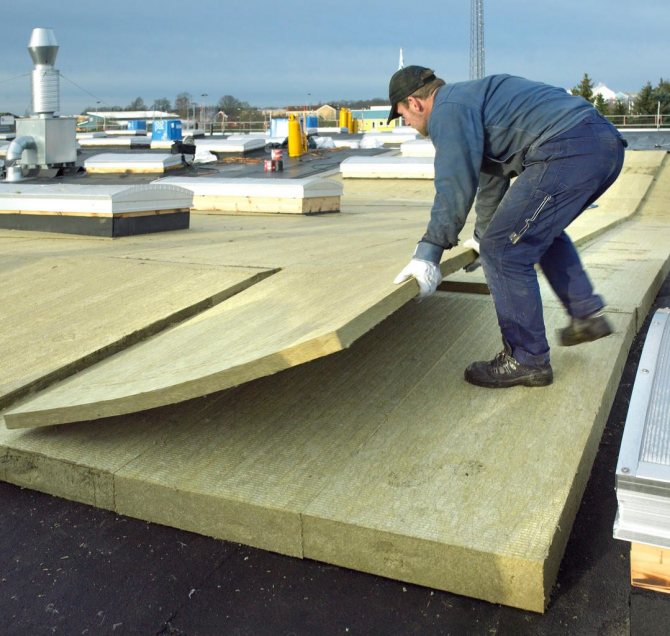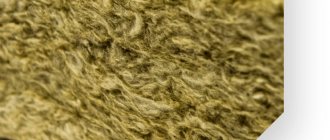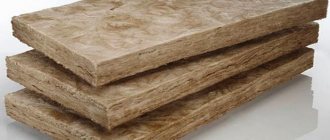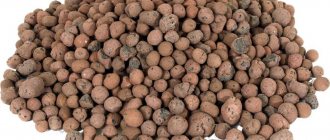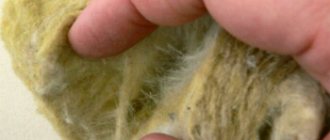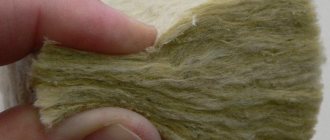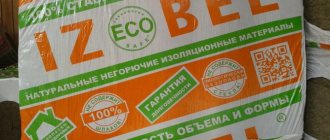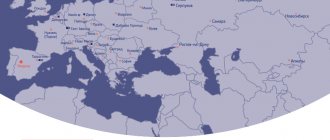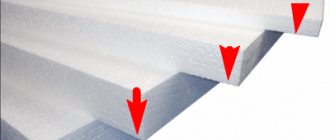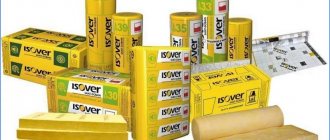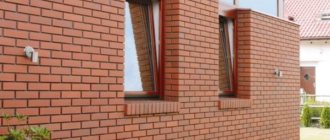Stone (basalt) wool Technonikol is a non-combustible modern insulation made from gabbro-basalt rocks, which has ideal energy-efficient characteristics and serves as sound and heat insulation in various structures (private houses, apartments, offices, industrial buildings, etc. .).
Due to its porous structure, this TechnoNIKOL insulation is able to reduce several times the cost of natural gas and electricity for heating in the winter, and provide the necessary coolness in the summer.
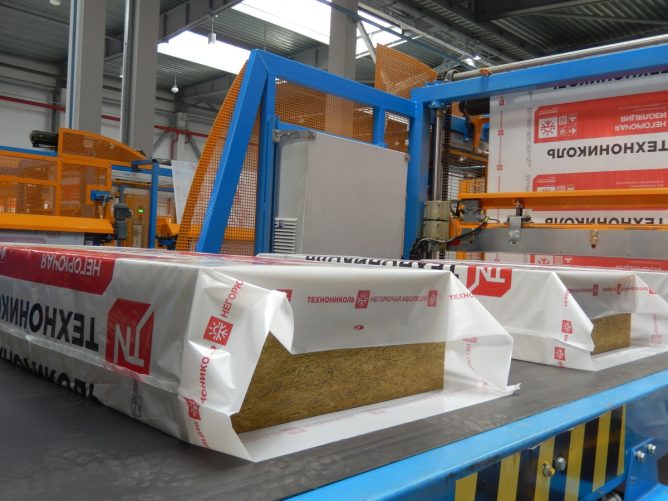
Let us consider in more detail why the basalt wool of this manufacturer has such high technical and economic characteristics and what varieties exist and it is better to use this or that type.
Variety of heaters Technonikol
Thermal insulation of a domestic manufacturer is represented by two main classes of insulation: mineral wool and extruded polystyrene foam.
Minvata Technonikol consists of the finest strands of rocks. There are air cells between basalt weaves. This combination provides excellent performance. Stone threads are responsible for the strength, refractoriness of the material, and many air cells give the basalt slabs required heat capacity.
Extruded polystyrene foam (EPS) is produced by combining styrene with special foaming additives. All components are mixed under high heat and pressure. The prepared mass is passed through an extruder - at the exit, smooth surface slabs.
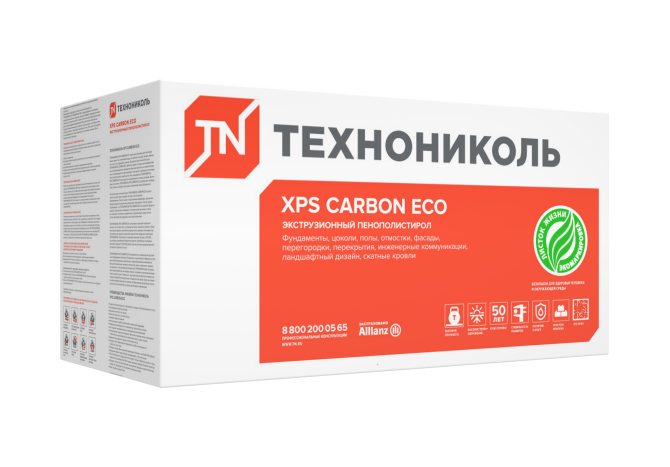

Competitive advantages of EPPS: light weight, easy installation and rigidity... Excellent strength characteristics allow using expanded polystyrene in areas where a soft heat insulator is not suitable. The disadvantages of EPS are flammability, the release of corrosive smoke during combustion.
Structure
In the production of insulation, specialists use rocks, or rather gabbro-basalt raw materials. Thus, the resulting heat insulator is not affected by fire. The fibers can only melt smoothly when they are affected by a temperature of 1000 degrees. Due to this property, Technonikol mineral wool has been used as a protection for a house against destruction and deformation in the event of a fire.
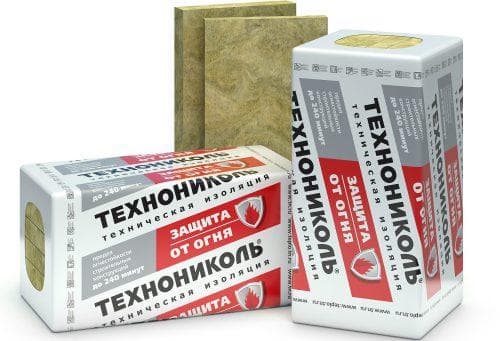

In the photo, TechnoNIKOL stone wool:
Types and characteristics
The range of mineral wool is quite diverse and is able to satisfy the needs of even the most demanding consumer.


"Rocklight"
This type is characterized by low weight and standard dimensions of min-plates, as well as low formaldehyde and phenol content. Due to its durability, the material is widely used for insulating country houses and summer cottages., allowing for a long time not to worry about the repair of thermal insulation.
Plates are suitable for finishing vertical and inclined surfaces, can be used for insulation of the attic and attic. The material has excellent vibration resistance and is neutral to alkalis. The slabs are not of interest to rodents and insects and are not prone to fungal growth.
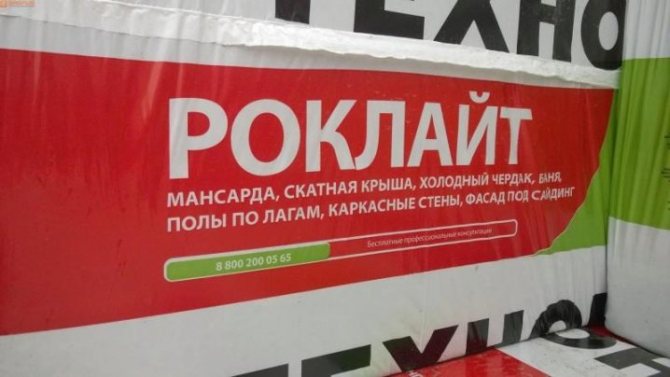

"Rocklight" is distinguished by high thermal resistance: a 12 cm thick layer of minelite is equivalent to a thick brick wall 70 cm wide. The insulation is not subject to deformation and creasing, and does not settle or swell during the freeze-thaw process.
The material has proven itself as a heat insulator for ventilated facades and houses with siding finishes. The density of the slabs ranges from 30 to 40 kg / m3.
Technoblock
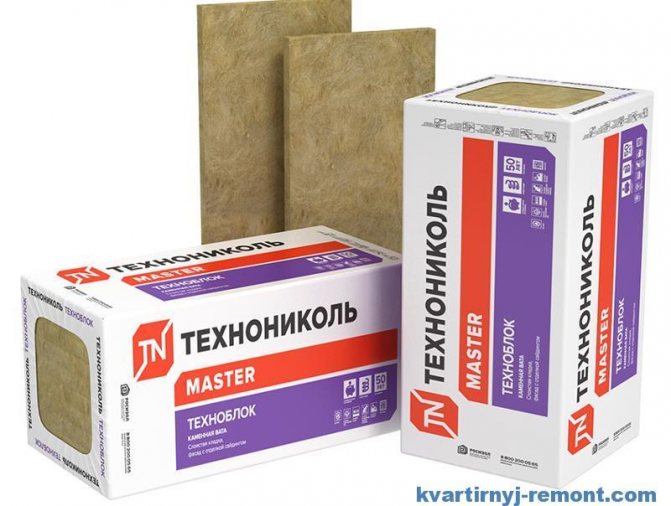

More dense and incompressible (compared to the listed) mineral wool slabs with a low phenol content in the binder.
- similarly to Technoacoustic plates, they provide both thermal insulation and noise protection;
- can be used for arranging wall layered masonry (unlike expanded polystyrene, these plates are vapor-permeable), both with and without an air gap, as well as frame walls.
"Technoruf"
High-density mineral wool for insulating reinforced concrete floors and metal roofs. Sometimes it is used to insulate floors that are not equipped with a concrete screed. The slabs have a slight slope, which is necessary for the removal of moisture to the catchment areas, and are covered with fiberglass.
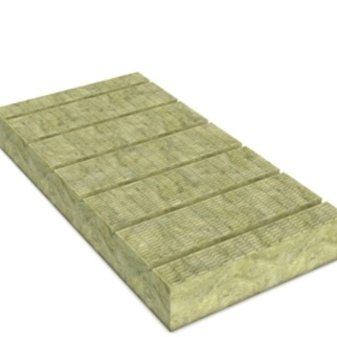

"Technovent"
Non-shrinking plate of increased rigidity, used for thermal insulation of ventilated external systems, as well as used as an intermediate layer in plastered facades.
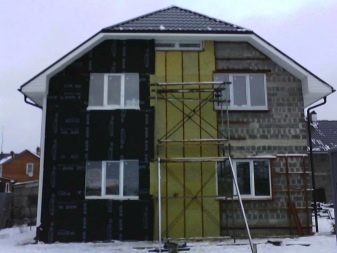

Technoflor
The material is intended for thermal insulation of floors exposed to serious weight and vibration loads. Indispensable for the arrangement of gyms, production workshops and warehouses. The cement screed is then poured over the mineral slabs. The material has low moisture absorption and is often used in combination with the "warm floor" system.
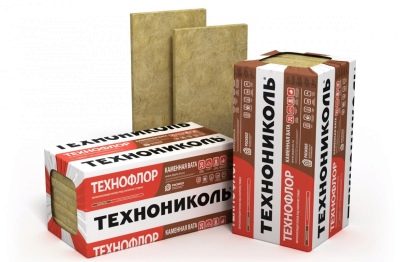

Technofas
Mineral wool used for external heat and sound insulation of brick and concrete walls for plastering.
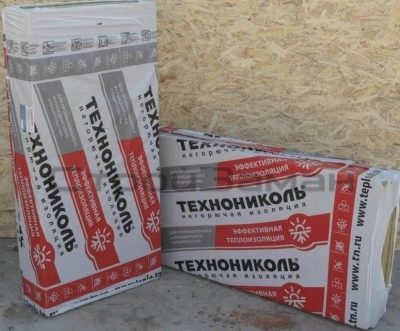

Technoacoustic
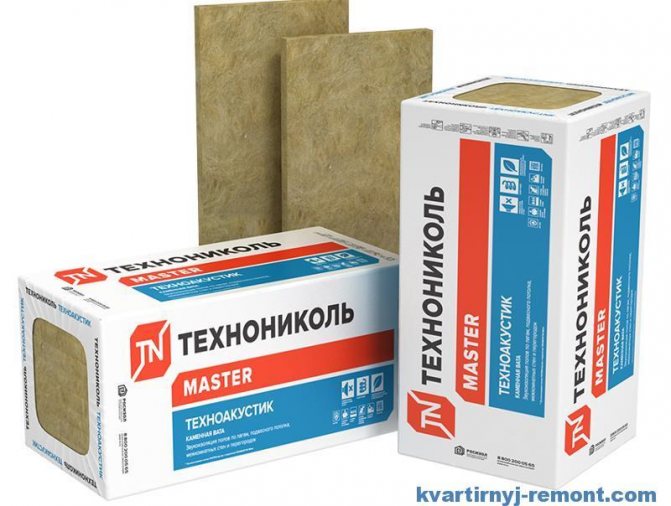

Slabs with a special arrangement of mineral fibers that provide a high level of sound absorption. In addition to incombustibility and moisture resistance, the following should be noted:
- the main area of application is the arrangement of soundproofing of frame partitions, suspended ceilings and floors between floors with laying on logs, no load;
- can be used both in apartments and office premises;
- the material has a low rate of compressibility, which allows it to work without shrinkage as part of vertical structures for 50 years or more.
"Teploroll"
Roll material with high sound insulation properties and having a width of 50 to 120 cm, a thickness of 4 to 20 cm and a density of 35 kg / m3. It is used in the construction of private houses as a heat insulator for pitched roofs and floors.
Application area
The Russian corporation supplies the building materials market with a wide range of its products, which allows it to meet any customer needs. The combination of 4 types of thermal insulation "TechnoNicol" allows you to carry out insulation:
- a pitched roof from the inside (about the inexpediency of thermal insulation of the roof from the outside with plates of extruded polystyrene foam and PIR materials can be found in the article "How to insulate the roof of a private house") and flat outside;
- facade, in two ways:
- wet method for decorative plaster or painting;
- ventilated facade for finishing with siding, PVC panels, porcelain stoneware, block house, imitation of timber, etc.
- walls by the "well method", when the insulation is attached between the load-bearing and decorative wall;
- walls from the inside of the room, as well as the facade, in two ways;
- floor, with all possible options:
- from below, from the basement side;
- under the screed ("floating screed");
- directly under the floor finish ("floating floor");
- by lags;
- under the "warm floor".
- ceiling - from below for painting, wallpaper, suspended and suspended ceiling and outside, in the attic.
If you are tied to the type of building, then the company's product can be used for thermal insulation of a private house, apartment, summer cottage, garage, bathhouse and sauna.
In addition, insulation is used to insulate metal entrance doors and utilities (pipes with cold and hot water).
Insulation materials "TechnoNicol" have also found their application in technical isolation: agriculture (greenhouses, incubators, storehouses for vegetables and fruits), automotive industry (insulation of refrigerators and soundproofing of individual vehicle units), sea and rail transport (refrigerators), etc.
Extruded polystyrene foam - application features
Polystyrene foam insulators are combined into one series - Carbon. The materials have similar characteristics, but differ in the form of release. The type of performance largely determines the scope of use of the EPS.
Material characteristics
Insulation is produced by extrusion. As a result, many sealed cells are formed. The composition and structure of expanded polystyrene endowed the heat insulator with the following properties:
- Low thermal conductivity. An indicator of 0.028-0.035 W / m * C makes the material one of the leaders in terms of thermal efficiency.
- Hydrophobicity. EPPS does not absorb moisture, retains its characteristics in a humid environment.
- Moderate burning. The use of carbon made it possible to minimize the flammability of expanded polystyrene - no burning droplets are formed when the material melts.
- Insulation thickness - 20-120 mm. The choice depends on the area of operation.
- Thermal insulator resistant to fungus, mold, and pests.
- The operating temperature range is comparable to that of basalt insulation - from -50 ° C to + 75 ° C.
Weaknesses of EPS: vulnerability to gasoline, solvents, UV rays, fire.
Carbon: variety of commodity items
Types of TechnoNIKOL Carbon extruded polystyrene foam:
- Eco - slabs of various thicknesses (20-100 mm) for insulating low-rise buildings, cottages.
- Drain - one side of the EPS has drainage grooves. The holes provide improved ventilation when insulating a flat roof or drainage of rainwater when insulating the foundation.
- Eco Fas - arrangement of house plinths, plastered facades. Milling from the outside ensures good adhesion with various surfaces.
- Eco SP - applicable for insulation of foundations using the Swedish plate method. The foundation is laid with communications, a floor heating system. Eco SP has increased rigidity, very low thermal conductivity.
- Prof - maximum strength. Application - insulation of floors on the ground, various foundations, flat roofs.
- Prof Slope is a combination of five panels that form a wedge-shaped insulation.
- Solid - high strength due to closed cells. Used on an industrial scale: insulation of highways, floors under load, railways.
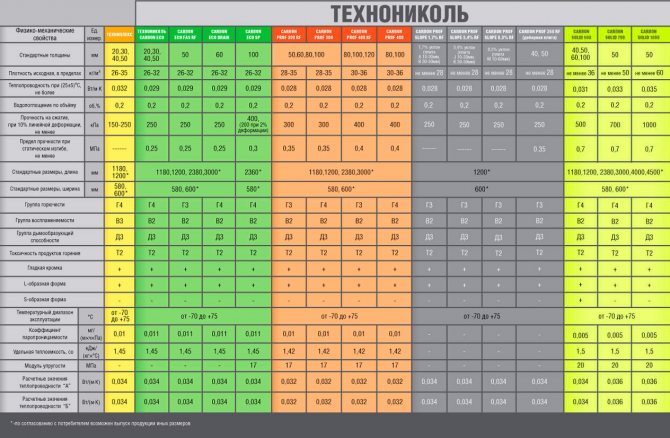

Basalt wool: properties and purpose of different types
Mineral wool insulation is in demand at different stages of thermal insulation of premises. The material is especially popular in the construction of prefabricated structures - its quality meet all the requirements and standards of frame housing construction.
Distinctive characteristics
Stone wool Technonikol is made of basalt. The processed rock, special production technology and binding components have endowed the heat insulator with a number of advantages:
- fire safety - a class of non-combustible materials;
- excellent thermal efficiency;
- resistance to chemical attack;
- wide operating temperature range - from -60 ° С to + 400 ° С;
- vapor permeability - quality is especially important for the walls of a frame house, correct installation of mineral wool prevents the appearance of a "thermos effect";
- moisture resistance;
- insignificant content of harmful substances - binding components not more than 2.5%;
- moderate elasticity and firmness.
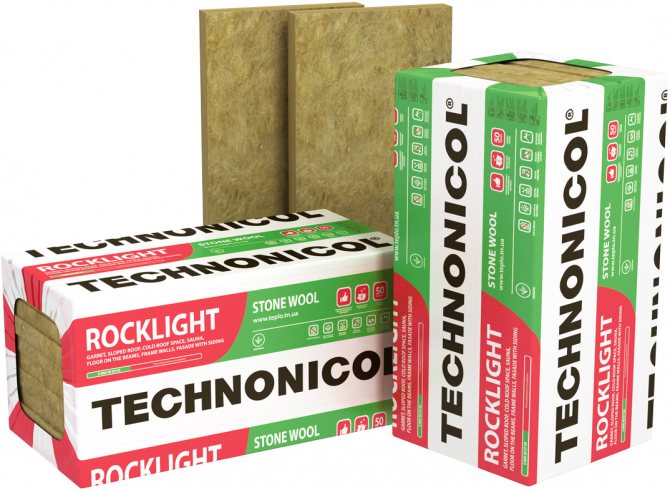

TechnoNIKOL produces slabs of different sizes, the thickness of the mats is standard - 50 mm and 100 mm... The parameters of heaters depend on the density of the heat insulator, its purpose. Let's denote the average characteristics of stone wool:
- thermal conductivity - 0.035-0.039 W / m * C;
- water absorption - within 1.5-2%;
- density - 25-50 kg / m3;
- vapor permeability - 0.3 mg / (m * h * Pa);
- compressibility - up to 8-55%, the indicator depends on the density of the material.
Pitched roof materials
For the convenience of buyers, the manufacturer has compiled materials on the scope of their application on the official website. Low density mats are suitable for pitched roofs., since it is assumed that the load on the roof will be small.
Solutions from TechnoNIKOL:
- Rocklite. Universal slabs for private construction. Density of TechnoNicol Rocklight - 30 kg / m3, compressibility - 30%, dimensions - 120 * 60 cm. Applicable for inclined, vertical structures that do not bear external load. The binder is a resin with a low phenol content. This composition allows you to use Rocklight for internal thermal insulation.
- Teploroll. Long mats of stone wool, wound in a roll. The density is 30 kg / m3, and the compressibility is within 50%. Dimensions - 4 * 1 m, thickness - 50/100 mm. Material suitable for pitched roofing and other inclined surfaces.
- Technoblok Standard. The increased density (45 kg / m3) allows the use of slabs not only for insulating frame roofs, but also for thermal insulation of layered masonry, frame-type walls and facades with a ventilation gap.
- Technolight Optima. The average density is 35 kg / m3. The scope of application is limited to structures, structures without significant loads. Can be used as the first inner layer of thermal insulation in ventilated facades.
- Technolight Extra. Plates are distinguished by a very low percentage of moisture absorption - no more than 0.5%. The density indicator is 30 kg / m3. The material has excellent resistance to compression and can be used as facade heat insulator for siding.
Useful: The roof of a frame house
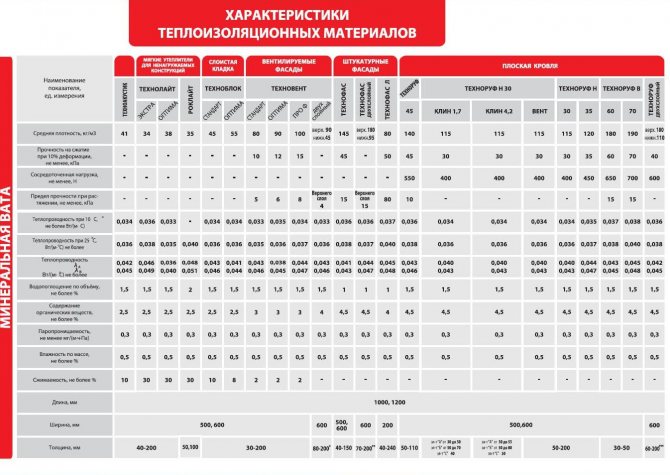

Facade works
A line of heat insulators has been developed for the walls. The choice depends on the facing technology. For plaster use TechnoNIKOL Technofas, under ventilated facades - Technoblok Standrat and Technovent.
Technofas. A distinctive feature of the series is the high density of basalt insulation. The indicator of different materials is in the range - 105-145 kg / m3. Water-repellent boards withstand the load of the plaster layer, neutral to concrete mortar.
Technovent. Strength characteristics are not so important for a ventilated facade. The density of Technovent slabs is 36-75 kg / m3. Technovent N (36 kg / m3) is used as an inner layer, and Technovent Extra (75 kg / m3) can act as a second material in the construction of two-layer insulation.
Technovent N can be replaced with Technoblock Standard - their parameters are very similar. The final choice is often made based on how much the insulation costs. In this regard, Technovent N.
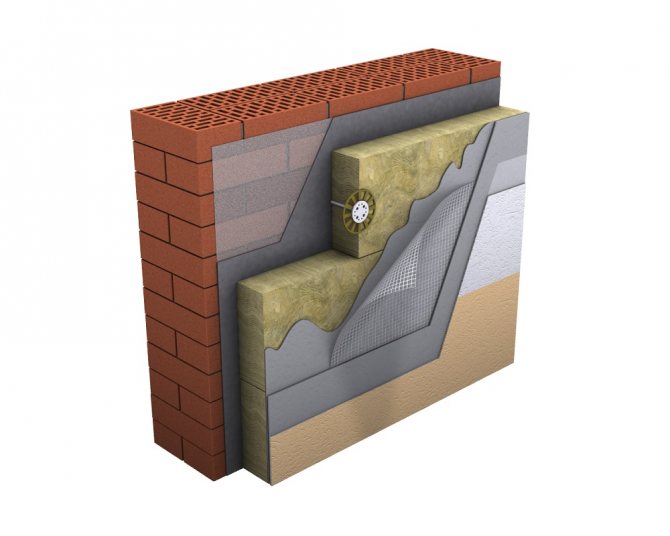

Sound absorbing sound insulation
A special purpose is for TechnoNIKOL Technoacoustic slabs. These are mats with a special structure for the placement of mineral fibers, providing excellent sound absorption... The basalt insulator is capable of absorbing up to 60 dB of noise.
The main field of application of Technoacoustic is noise insulation of frame partitions, arrangement of recording studios... Plates are also suitable for residential and office use. The density of 40 kg / m3 allows them to be used in ventilation facades. However, they are in little demand there due to their high cost - there are more affordable alternatives.
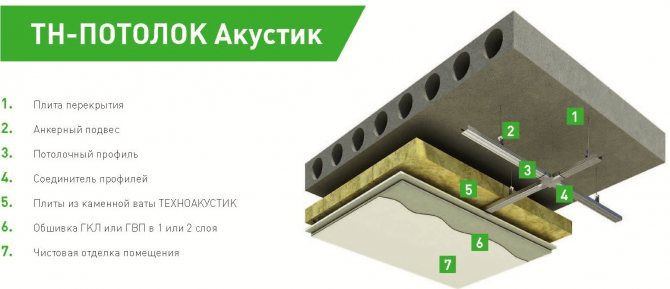

Insulation of floors and flat roofs
These structural elements are more exposed to loads, which means that the requirements for the mechanical strength of the insulation are higher. For floors and flat roofs, the company sells a separate series of heat insulators - Technoruf. Release form - dense mats with dimensions 120 * 60 cm, thickness - 30/40/50/100 mm. Products differ among themselves in density, an indicator of compressive strength.
Series representatives:
- Technoruf 45 - density 140 kg / m3, compressive strength - 45 kPa, organic content - up to 4.5%;
- Technoruf B 60 - high density 180 kg / m3, strength indicator - 60 kPa;
- Technoruf N 30 - density 115 kg / m3, strength - 30 kPa;
- Technoruf N Extra - at a density of 100 kg / m3, the strength is 30 kPa;
- Technoruf Prof - density 160 kg / m3, strength characteristics - 60 kPa.
Technoruf N 30 is intended for laying the bottom layer with a two-level scheme of thermal insulation of a flat roof in coverings made of metal profiles or reinforced concrete. Other materials withstand direct significant loads, they can be installed as the main insulating layer under all types of roofing pies.
Useful: Materials for a frame house
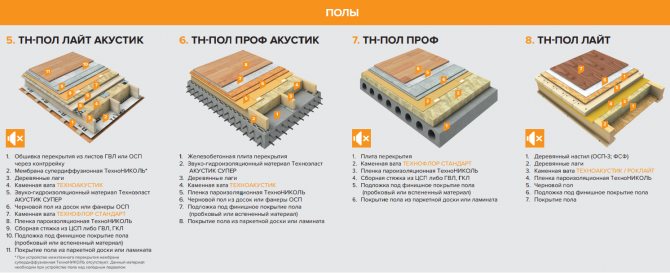

Innovative insulation PIR TechnoNIKOL
The mats are made of polyisocyanurate foam. The structure of the slabs is sealed cells, externally the insulation is covered with a layer of foil. This solution improves thermal efficiency - the thermal conductivity coefficient is reduced to 0.021 W / m * C. An innovative polymer is used to insulate the fuel tank of rockets.
A 1.6 cm PIR insulation layer is equivalent in terms of thermal efficiency to a 1.34 m concrete wall.
Polyurethane is considered the toughest elastomer with compressive strength over 120 kPa. The excellent characteristics of the insulation make it in demand when arranging flat roofs. Reviews of PIR insulation are positive - the material is lightweight, easy to install, durable, and the aluminum layer increases its fire resistance.
TechnoNIKOL products are in active demand. Main advantages: wide assortment of choice, high quality and loyal pricing policy.
Rocklight mineral wool insulation
Rocklight mineral wool is a non-combustible slabs with low thermal conductivity, produced from basalt rocks, intended for heat and sound insulation of residential and industrial premises. Ease of installation and good operational qualities have been appreciated by numerous specialists and many craftsmen and private developers.
Rocklight slabs are designed for heat and sound insulation of building structures of residential buildings and industrial structures, in which the insulation does not perceive external load. Recommended for use as insulation in horizontal, inclined and vertical structures, such as: ventilated pitched roofs, attics, attic floors, floors with insulation between logs, walls with siding (layered masonry), frame walls and partitions.
Distinctive features of Rocklight mineral wool
- Rocklite does not react with alkali and metal.
- Low water absorption.
- Not attractive to insects and mice, not susceptible to fungi.
- It is environmentally friendly, breathable.
Specifications
| Indicator name | Value for ROCKLIGHT slabs |
| Density, kg / m3, no more | 30 |
| Compressibility,% no more | 30 |
| Thermal conductivity at 25 ° С, W / (m K), no more | 0,042 |
| Thermal conductivity under operating conditions A, W / (m K) no more | 0,048 |
| Thermal conductivity under operating conditions B, W / (m K) no more | 0,051 |
| Water absorption at full immersion,% by volume, no more | 1,5 |
| Organic matter content,% by weight, no more | 2,5 |
| Flammability, degree | n / a |
Price
RUB / package
530
from
Specifications
Physical and mechanical characteristics determine the suitability of a particular material for the specific needs of the buyer. Plates differ in strength, slope, thickness and cost.
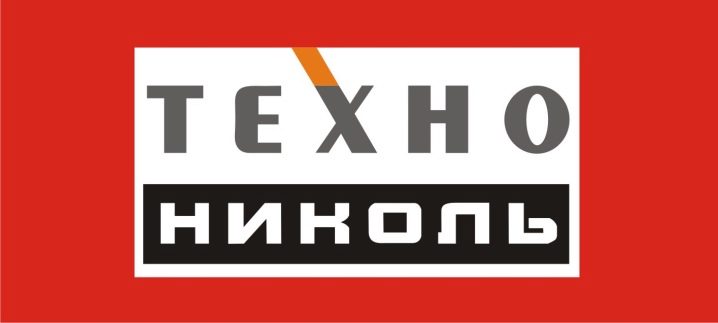

Fire resistance
Most of the insulation materials are non-flammable. The flammability group of raw materials has its own marks. For example, heat-insulating boards "Pir" for a bathhouse and a balcony are marked with the G4 mark. Materials with fiberglass and foil lining have indicators G1 and G2.
Extrusion varieties "Eco" and professional insulation with carbon fiber have indicators G 3 and G4. At the same time, smoke generation and flammability are marked with D3 and B2 markings."Techno" pierced materials are a non-combustible type of heat-insulating material for any material thickness (from 30 to 80 mm). Basalt-based and basalite-sandwich versions are marked with NG (non-combustible).
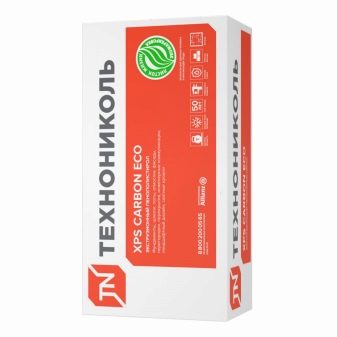

Thermal conductivity
The performance of each material is different. For example, the level of thermal conductivity is:
- technical heat insulators - 0.037-0.041 W / mS;
- extrusion analogs in the form of plates - 0.032 W / mS;
- thermal insulation boards "Pir" - 0.021 W / mC;
- basalt-based analogs - 0.038-0.042 W / mC;
- options for shipbuilding - 0.033-0.088 W / mS.
Release form
The company offers two types of insulation: in rolls and in the form of sheet material. The second type is thermal insulation made of rectangular sheets. For ease of transportation, they are sold in packages of several pieces. The number of sheets in a bundle may vary. It depends on the thickness of the insulation and its composition.
For the convenience of the buyer, the manufacturer indicates the number of square meters on the marking. This allows you to perform cladding of roll or sheet material, taking into account the specific parameters of the base.
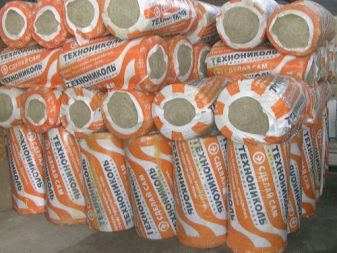

Dimensions (edit)
In addition to the fact that the dimensions of roll and tile materials are different, the brand provides for a flexible approach to each client. On an individual order, you can make insulation in a different format, convenient for the customer. The dimensions of standard slabs are 1200x600x100, 1200x600x50 mm. The thickness of the material varies on average from 1 to 15 cm. The sizes of varieties with an edge are 1185x585, 1190x590 mm with a width of 20, 30, 40, 40 mm. The length range is from 600 to 12000 mm, the width is from 100 to 1200 mm.
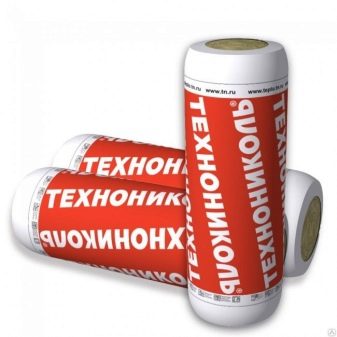

How to choose insulation
In the process of choosing a thermal insulation material, regardless of the manufacturer, the user should pay attention to a number of criteria. It is they who will allow you to choose the right insulation, taking into account the climatic zone, external natural factors. Therefore, the following requirements are imposed on the selected material.
- Thermal insulation level. This criterion must correspond to a particular climatic zone, as well as to the material of the insulated surface itself - it is wood or brick, blocks, and so on.
- The weight of the insulation itself - the lower it is, the more savings on fastening, the less weight is given to the wall, the very foundation of the structure.
- Steam permeability level - the indicators here should be high, as this will ensure moisture removal and the walls will always be dry.
- Long years of service. You shouldn't choose a material that will last only 5-8 years - at least 25 years.
- Environmental indicators are also important, when the insulation does not emit harmful and poisonous compounds into the air.
- Resistant to ultraviolet light, as well as insects, such as bark beetles or rodents.
- The material itself must have low flammability indicators.
- Moisture absorption. The indicator should not exceed from 30 to 60%.
Important! And the last criterion is the cost of the insulation. According to general standards, the cost of insulation should not be more than 10% of all costs for building a house.
Installation features
Among the popular methods of insulation, craftsmen use two techniques - a wet and a dry facade. The method of insulating a wet facade provides for the presence of wet materials during the finishing itself - adhesive mixtures and plaster, and so on. The very same technology of this type of wet installation is as follows.
The insulation itself is simply attached, so to speak, "put" on the adhesive mixture. Then they are fixed with umbrella dowels. This will allow the material itself not to deform during operation, not to slide off the wall itself. With regard to the consumption of dowels - at least 5 pieces must be used per square meter of area. After that, a reinforcing special mesh is attached at the top and again covered with a layer of glue, then primed with special compounds.Finish the work by applying a layer of decorative plaster and paint.
Advantages and disadvantages
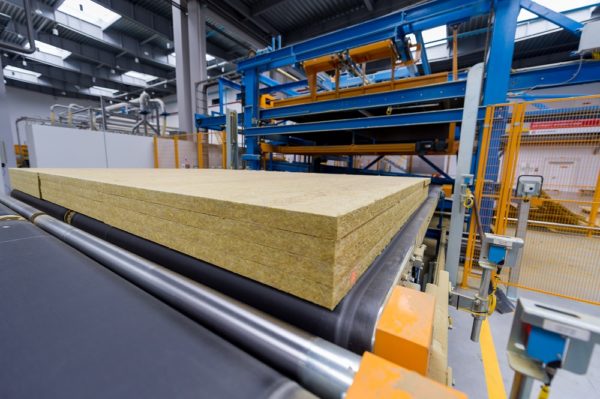

Manufacturing facility .
Any material has its pros and cons, without considering which its characterization will be incomplete. Let's start with the positives.
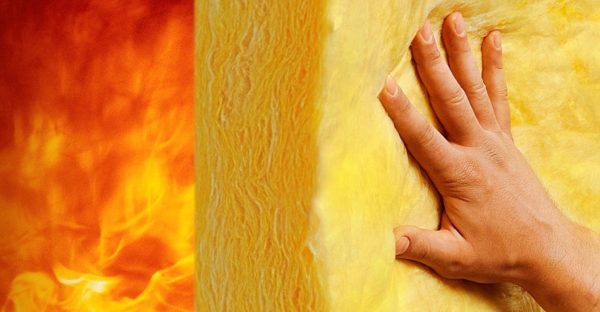

Minvata resists fire well.
Advantages of TechnoNIKOL cotton wool:
- Basalt raw materials... Cotton wool is produced only from high-quality raw materials of the gabbro-basalt group, as a result, the material does not burn, does not cause allergies, and has good technical characteristics;
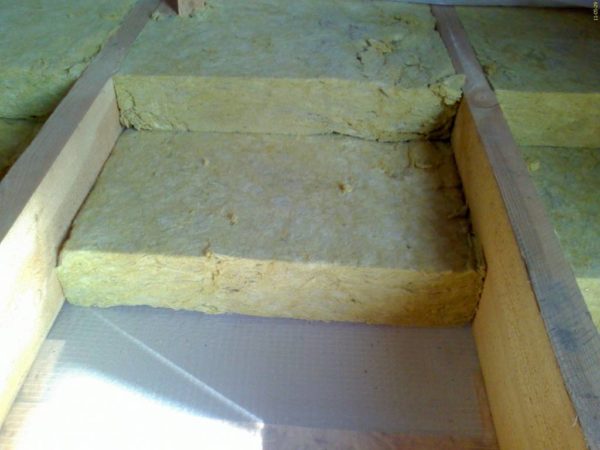

When insulating the floor, the slabs are laid between the logs.
- High quality binder... Any mineral fiber board is impregnated with organic resins containing phenol and formaldehyde. TechnoNIKOL uses only high-quality resins, in which these dangerous toxins are bound and do not escape to the outside;
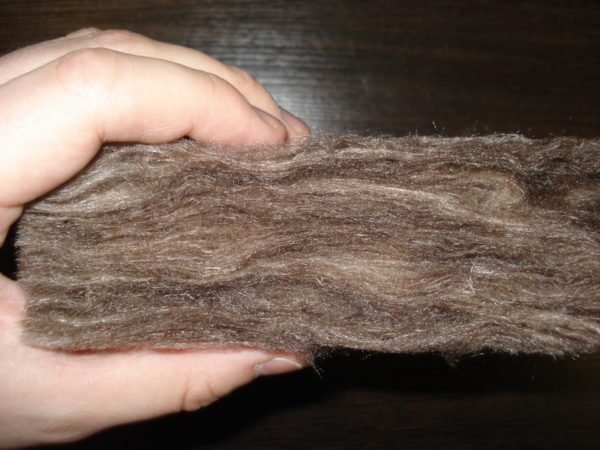

Fiber does not cause itching and allergies.
- A wide range of... You will be able to choose the kind of insulation that is best suited for your purposes. The manufacturer is constantly expanding its product range for your convenience;
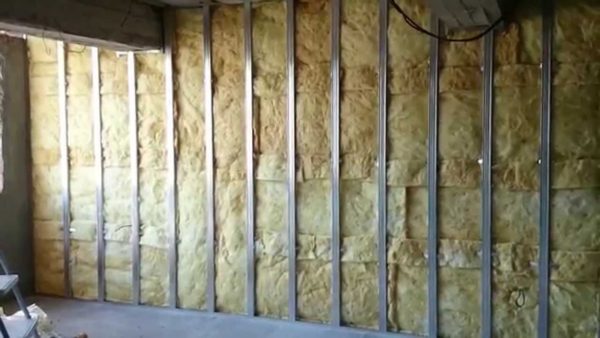

Good sound absorption allows you to lay material for filling walls from gypsum board.
- Exact geometry... Mats and especially slabs have clearly marked dimensions, which are maintained from product to product with millimeter precision. This facilitates the calculation and installation of insulation;
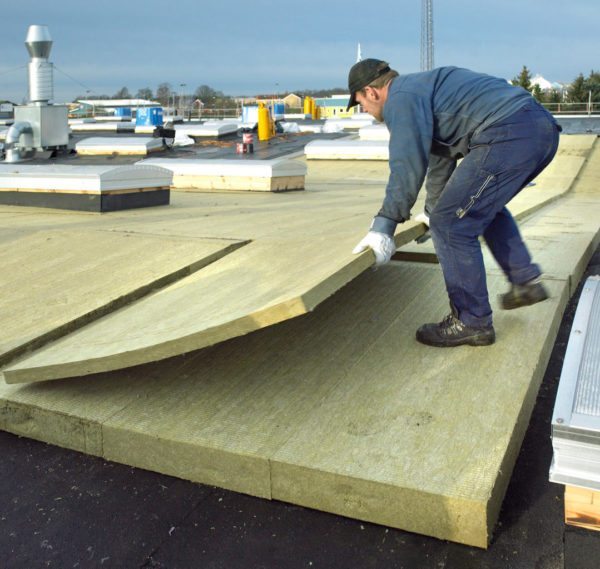

The photo shows - dense mats can withstand the weight of an adult man.
- Simple assembly... Heaters of this brand are distinguished by the ability to do it yourself without the involvement of specialists. As a result, the cost of insulation is much lower;
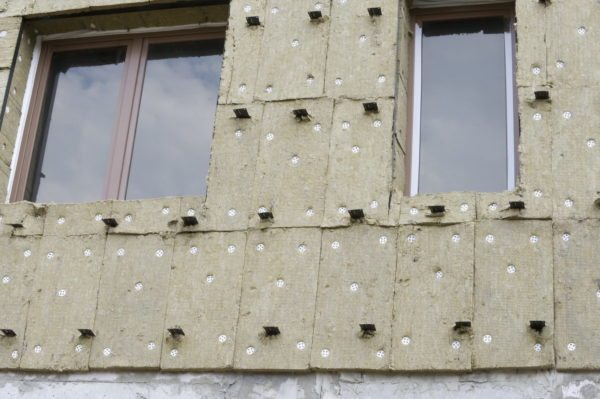

Basalt wool is successfully used for facade insulation.
- Durability... The company's products are distinguished by a long service life exceeding 50 years (subject to the conditions of use and installation).
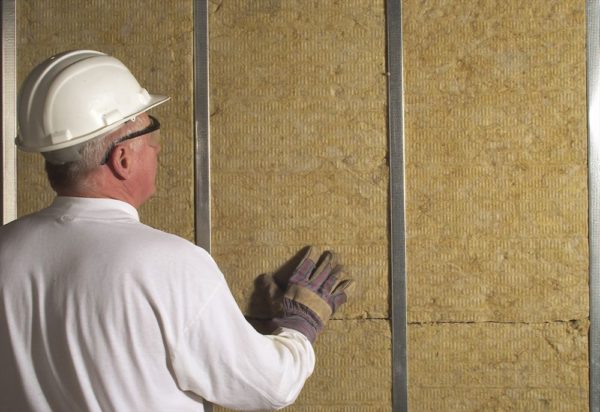

The instruction allows you to work with mineral wool on your own, without the involvement of specialists.
Disadvantages of mineral wool:
- Dust emission... Even basalt raw materials cannot completely protect from dust. Although it does not itch and does not prick, inhaling it can be harmful to health, therefore it is recommended to cover the plates with membranes;
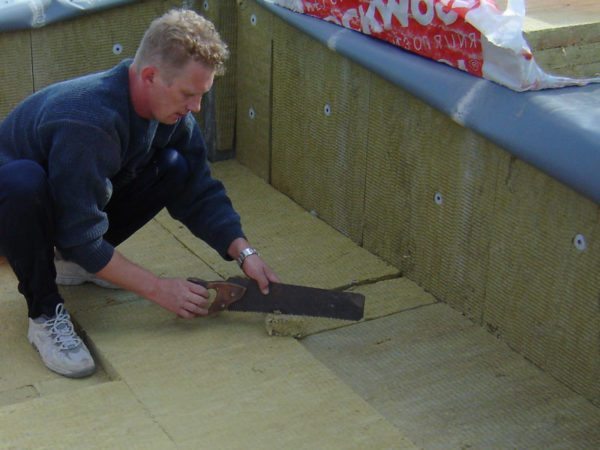

It is better to work with mineral wool with gloves and a respirator.
- Vapor permeability... Although the fibers themselves do not absorb moisture, moisture can accumulate inside the cotton wool in the form of steam and drops, increasing its thermal conductivity. It is recommended to use a vapor barrier for laying slabs and mats;
- High price... Basalt wool is more expensive than any similar insulation, it is more expensive than expanded polystyrene and a number of other materials. In return, you get safety and good insulation.
Testimonials
- Igor, 48 years old: “To insulate the summer cottage, I used mineral wool from Technonikol - Technofas. I am very pleased with my choice. The installation process is quite simple and fast, so I managed to cope with everything on my own. The only drawback is the high cost of the material, but the heat-insulating qualities of the material are excellent. "
- Vladimir, 39 years old: “Mineral wool Technonikol is just a salvation for my house. The house was built of bricks, so the heat loss was significant. I had to pay a lot of money for heating in order to maintain a comfortable temperature. After warming, everything changed dramatically. Now it is very warm here in winter and cool in summer ”.
- Andrey, 32 years old: “I have been doing house insulation for 5 years. I advise all my clients to use Technonikol mineral wool. This is an innovative heat-insulating material that allows you to reliably protect a house from the cold, and also from fire, since cotton wool has a high resistance to fire. In addition, a wide range of products allows you to choose the appropriate option, taking into account the characteristics of buildings and operating conditions. "
Mineral wool Technonikol is one of the most popular thermal insulation materials, which is actively used to insulate residential or non-residential structures. Unique technical characteristics and ease of use are the main advantages of the material, which allow Technonikol mineral wool to be in the leading positions.

